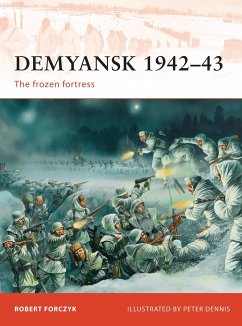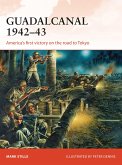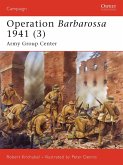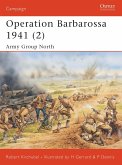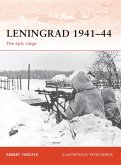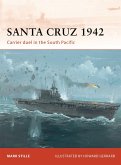The fighting around the town of Demyansk was one of the longest encirclement battles on the Eastern Front during World War II, stretching from February 1942 to February 1943. Originally, the German 16. Armee occupied Demyansk in the autumn of 1941 because it was key terrain that would be used as a springboard for an eventual offensive into the Valdai Hills. Instead, the Soviet winter counteroffensive in February 1942 encircled the German II Armeekorps and other units, inside the Demyansk Pocket. Yet despite severe pounding from five Soviet armies, the embattled German troops held the pocket and the Luftwaffe organized a major aerial resupply effort to sustain the defenders. For the first time in military history, an army was supplied entirely by air. In February 1943, Marshal Timoshenko was ordered to launch an offensive to cut off the base of the salient and annihilate the 12 divisions. At the same time, Hitler finally came to his senses after the Stalingrad debacle and authorized the 16. Armee to withdraw from the pocket. This volume will conclude with the drama of a German Army-sized withdrawal under fire in winter, under attack from three sides.
Hinweis: Dieser Artikel kann nur an eine deutsche Lieferadresse ausgeliefert werden.
Hinweis: Dieser Artikel kann nur an eine deutsche Lieferadresse ausgeliefert werden.

